Aujourd’hui, on tuerait pour avoir une carrière solo de ce niveau. Sorti lessivé de l’aventure Commotions, Cole s’exile à New-York et va explorer de nouveaux territoires sonores avec le triumvirat formé par Robert Quines, Fred Maher et Matthew Sweet. De 1990 à 1995, Lloyd Cole va donc publier des albums, qui sans atteindre le niveau de Rattlesnakes (disque intouchable), sont une leçon d’élégance et une mine de belles chansons.
New-York
Quelles étaient tes relations avec New-York en 1989/1990 ?
Lloyd Cole : Elles étaient parfaites. J’aimais cette ville et elle m’aimait en retour (pas autant que je l’aime). Elle m’a insufflé de l’énergie et de l’ambition… Ce qui me manquait à la fin des Commotions. Bien sûr c’est un peu loin, l’air y est terrible mais je voulais essayer des choses que je n’avais jamais essayé auparavant.
Discographie
Lloyd ColeLloyd Cole – The One You Never Had
Comment as-tu rencontré Robert Quine ?
Lloyd Cole : Une des premières personnes avec qui je suis devenu ami en arrivant à New York fut Fred Maher. Il venait juste de produire New York de Lou Reed et Scritt Politti était en repos. Fred et Robert étaient proches depuis que Fred avait assuré la batterie sur le dernier Voidoids. Quand j’ai voulu enregistrer deux nouveaux disques, j’avais en tête deux guitaristes avec qui je voulais travailler : Richard Thompson et Robert Quine. J’ai mangé avec Robert des hamburgers chez Elephant & Castle sur Prince Street et nous nous sommes bien entendus. Il aimait bien la direction que je prenais sur ce disque. Nous sommes restés amis jusqu’à sa mort. C’était l’ami le plus difficile que j’ai jamais eu, probablement, mais aussi le plus chaleureux et plus amusant. J’ai toujours ri à ses plaisanteries.
Comment s’est déroulé l’enregistrement de ce premier album ?
Lloyd Cole : C’était les années 90 et l’argent régnait partout. La maison de disques ne m’a pas donné de budget (peut-être qu’elle en avait donné un à Fred). J’ai travaillé sur les chansons, nous avons été en studio et 90% des choses se sont faites en douceur. Tout s’est fait facilement. Nous avons mangé beaucoup de hamburgers et bu pas mal de bière.
Quels sont tes meilleurs souvenirs liés à cet enregistrement ?
Lloyd Cole : Probablement la dernière session. Il s’agit de l’enregistrement de No Blue Skies qui est la meilleure prise vocale que j’ai faite. L’histoire se trouve sur mon site Internet. Bowie était dans le studio d’à côté pour un petit moment pour enregistrer avec Tin Machine. Je ne l’ai jamais vu mais je reste encore excité.
Lloyd Cole – No Blue Skies
Don’t Get Weird on Me Babe
Comment as-tu trouvé le son de Don’t Get Weird on Me Babe ?
Lloyd Cole : Bien. Nous avions crée un son rock’n’roll sur le disque précédent. Blair a écrit ces 5 titres qui sonnaient comme un orchestre. Il y avait au départ pas mal de synthés et de samples et je me suis dit : « Pourquoi pas un orchestre ? » Comme je te le disais plus haut… Il n’y avait aucune limite de budget dans les année 90.
Lloyd Cole – The One You Never Had
Pourquoi Polydor n’a pas publié Smile If You Want To ?
Lloyd Cole : Ce n’était pas Polydor à cette époque. J’avais été transféré chez Fontana. Mon agent était Dave Bates et il avait supervisé les sorties de Bad Vibes et Love Story. Il était satisfait de ce disque et puis il est parti. Je ne suis plus sûr des événements. Sans Bates, j’ai directement échangé avec le directeur de Polygram, Howard Berman et il ne voulait pas publier ce disque car ils voulaient sortir un best-of en premier. Cela aurait été mieux pour moi en 1996. Ce disque n’avait pas encore de titre à l’époque. Ils voulaient des nouvelles chansons mais je ne voulais pas en inclure sur ce best-of. J’en ai enregistré quelques-unes. Ils ont été satisfaits avec deux singles. Nous étions tous fatigués. Dix-huit mois se sont écoulés… Quand ils ont publié The Collection, ils ont sorti un single à la dernière minute. J’ai alors appelé Howard pour lui dire qu’il était peut-être temps que je quitte son label. Ils nous ont mutuellement épuisés. Rester sur le même label pendant un long moment est quelque chose de difficile. J’aurais dû les quitter en 1993, tout le monde aurait été plus heureux.
Stephen Street a produit cinq titres de Love Story. Pourquoi seulement cinq ?
Lloyd Cole : Faire Love Story a été tortueux. Cela a pris pas mal de temps. Les premières sessions ont été un désastre. Je n’avais pas de chansons. Quand j’en ai écrites et que nous avons fait des démos vraiment très simples, tout le monde les aimait et était d’accord pour dire qu’elles donnaient du sens au projet. Je voulais un producteur et pas seulement Adam Peters et moi. Nous avons fait venir Street. Il est venu mais le résultat n’était pas brillant. Bates a donc viré Street. A la fin du disque, j’ai assuré toute la production. Bates a voulu que j’endosse ce nouveau rôle sur Smile If You Want To.
Lloyd Cole - Love Story
Quelle est l’histoire de la chanson Happy To You ? Il s’agit de ma chanson préférée de ce coffret.
Lloyd Cole : C’est aussi une de mes favorites. Elle est issue d’une de mes meilleures sessions de travail avec Adam Peter. Il a fait batteries avec des samples tronqués. Chris Hugues a eu aussi énormément d’impact sur cette chanson. Il était dans le secteur pour superviser Adam et moi même. IL a suggéré notamment que je chante un ton plus haut. Je pense que je l’ai écrite en mi mineur et que je l’ai enregistrée en sol mineur. C’est ce qui a fait la différence. C’est un standard de Lloyd Cole. C’est sûrement une de mes meilleures chansons. Quines joue de la guitare dessus et c’est très beau.
En 2015, tu as publié le coffret Lloyd Cole & The Commotions – Collected Recordings 1983-1989 et maintenant tu publies un coffret qui comprend tes 4 premiers albums solo. Comment regardes-tu ton passé ? As-tu des regrets ?
Lloyd Cole : J’ai été très chanceux. Les années 1994-1998 ont été difficiles mais jusque lors ce fut facile. Des regrets ? Le plus grand est d’être resté chez Polygram alors que j’aurais dû les quitter en 1993.
Lloyd Cole In New York : Collected Recordings 1988 – 1996 de Lloyd Cole sera disponible le 17 mars 2017. Il contiendra les 4 premiers albums solo de Lloyd Cole et le cinquième disque (Smile If You Want To) jusque-là jamais publié. Un disque de 20 démos, un livre écrit par John O’Connell et des photographies Kevin Cummins de Youri Lenquette agrémenteront ce joli coffret.
Le dernier album de Lloyd Cole, Standards, est disponible chez Tapete Records.
- Don’t Look Back
- What Do You Know About Love ?
- No Blue Skies
- Loveless
- Sweetheart
- To The Church
- Downtown
- A Long Way Down
- Ice Cream Girl
- Undressed
- I Hate To See You Baby Doing That Stuff
- Waterline
- Mercy Killing
- Butterfly
- There For Her
- Margo’s Waltz
- Half Of Everything
- Man Enough
- What He Doesn’t Know
- Tell Your Sister
- Weeping Wine
- To The Lions
- Pay For It
- The One You Never Had
- She’s a Girl and I’m a Man
- Morning Is Broken
- So You’d Like To Save The World
- Holier Than Thou
- Love You So What
- Wild Mushrooms 6. My Way To You
- Too Much of a Good Thing
- Fall Together
- Mister Wrong
- Seen The Future
- Can’t Get Arrested
- Trigger Happy
- Sentimental Fool
- I Didn’t Know You Cared
- Love Ruins Everything
- Baby
- Be There
- Unhappy Song
- Like Lovers Do
- Happy For You
- Traffic
- Let’s Get Lost
- For Crying Out Loud
- Old Enough To Know Better
- Memphis
- Love Like This Can’t Last
- No More Love Songs
- Man On The Verge
- Santa Cruz
- Alright People
- You’re A Big Girl Now
- Another Lover
- 39 Down
- Went To Woodstock
- I’m Gone
- Fool You Are (demo)
- Weakness
- A Long Way Down
- Sweetheart
- Ice Cream Girl
- Wild Orphan
- Loveless
- What Do You Know About Love?
- Know You Too Well
- The Witching Hour
- The English Weather
- I Confess
- To The Lions
- The Ship Song
- Pay For It
- Weeping Wine
- The One You Never Had
- Weird On Me
- Casanova Smith
- Cold Empty Room
- Everyday
- She Loves You
Retrouvez nos articles concernant Lloyd Cole :
- Cole à la cool
- [Micro-Photos] Lloyd Cole and the Photographers
- Lloyd Cole – Period Piece
- Lloyd Cole and The Commotions – Collected Recordings 1983-1989
English text
What are your relationships with New-York in 1989/1990 ?
Very much like young love, i loved the city and it loved me back (maybe not so much as i loved). It filled me with energy and ambitio that i had been missing in the last days of the commotions. Of course i took it a little too far, the air is awful, but i wanted to try some things i hadn’t tried before.
How did you meet Robert Quine ?
One of the first people i became friends with in nyc was Fred Maher, who had just produced Lou Reed’s new york and Scritti Politti seemed to be on some sort of sabatical. Fred and quine were close, since Fred had drummed in the last version of the voidoids… when i decided i wanted to make records again i had a list of 2 guitarists i wanted to work with, Richard Thompson and quine. Quine and i had lunch – burgers at elephant and castle on prince st – we got along fine and he liked the idea i had for the record. We were friends until he died. He was the most difficult friend i ever had, probably, but much warmer and funnier than you would think from afar. I still laugh at his jokes.
How easy was the recording process of your first solo album ?
It was the 90’s (ok, not quite) there was money everywhere. The record company didn’t give me a budget (maybe they gave Fred one…). I worked on songs, we went into the studio and 90% was smooth sailing. That’s about as easy as it gets. We ate a lot of hamburgers and drunk a lot of beer.
What’s your best memories of the recording process of this first solo album ?
Probably the last session – recording no blue skies which i think is my best vocal take. The story is here – http://www.Lloydcole.Com/no-blue-skies-vocal-recording/
also Bowie was next door for a while working with Tin Machine. I never saw him but still, pretty exciting.
How did you find the sound of don’t get weird on me babe ?
Well, we’d established the rock n roll sound on the previous record, and then Blair wrote these 5 tunes which just sounded like an orchestra, even thoigh it was mostly synths and samples, i thought – why not a full orchestra (see above re 90’s and no budget).
Why Polydor did not release smile if you want to ?
It wasn’t Polydor, by that time, i’d been transferred to Fontana and my a&r person was dave bates, he had overseen bad vibes and love story. He was happy with the record, and then he was fired / quit. I’m still not sure which. I think the official story was he went on gardening leave. Without bates i dealt directly with the head of polygram, howard berman, and he didn’t want to release it right away, saying they wanted to release a best of album first to ‘better position’ me for the release of the 1996 album (which didn’t have a definitive titele at the time). They wanted new songs, i didn’t want to include new songs but i recorded some… by the time they were happy with 2 as singles we were all worn, out, maybe 18 months had passed… when ‘the collection’ came out they pulled the single at the last minute and i called howard and said maybe it’s time we parted company. They were worn out with me and i was worn out with them. Staying at the same label for a long time is tough… i should have left them in 1993, everyone would have been happier.
Stephen Street produced five tracks of love story. Why only five ?
Making love story was very tortuous. It took a very long time. The original sessions were a disaster, I didn’t have songs. Then i wrote some and we made (for the first time in a while) some very simple basic demos. Everyone loved them and it was agreed that these demos should define the, very understated, feel of the project. I wanted a producer, not just Adam Peters and i, we brought in Stephen Street. It went quite well but not brilliantly and bates fired Stephen. By the end of the record I was pretty much doing all the producing, which is why bates wanted me to continue doing so for the unreleased album.
What’s the story of Happy for you ? It’s my favorite song of this boxset.
It’s one of my favourites, too. It’s one of Adam Peters’ best momemts working with me. He made the drum sound with truncated samples. Chris Hughes had a big impact on that song too. He was around for the demo sessions to oversee Adam and I and he suggested on this song, and a few others, that I sing in a higher register. I think I wrote it in e minor and the recording is in g minor. That makes a big difference. The song is a standard lloyd cole you should leave me song, but surely one of my better ones. Quines playing on it is lovely.
In 2015, you published the boxset of the commotions. Now a boxset of your first solo albums. What are your feelings about your past ? Do you habe some regreats ?
Mostly i’ve been very lucky. 1994-1998 were tough but it had been easy until then. Regrets, of course. Probably the biggest being staying with polygram when I could have walked in 1993-4.

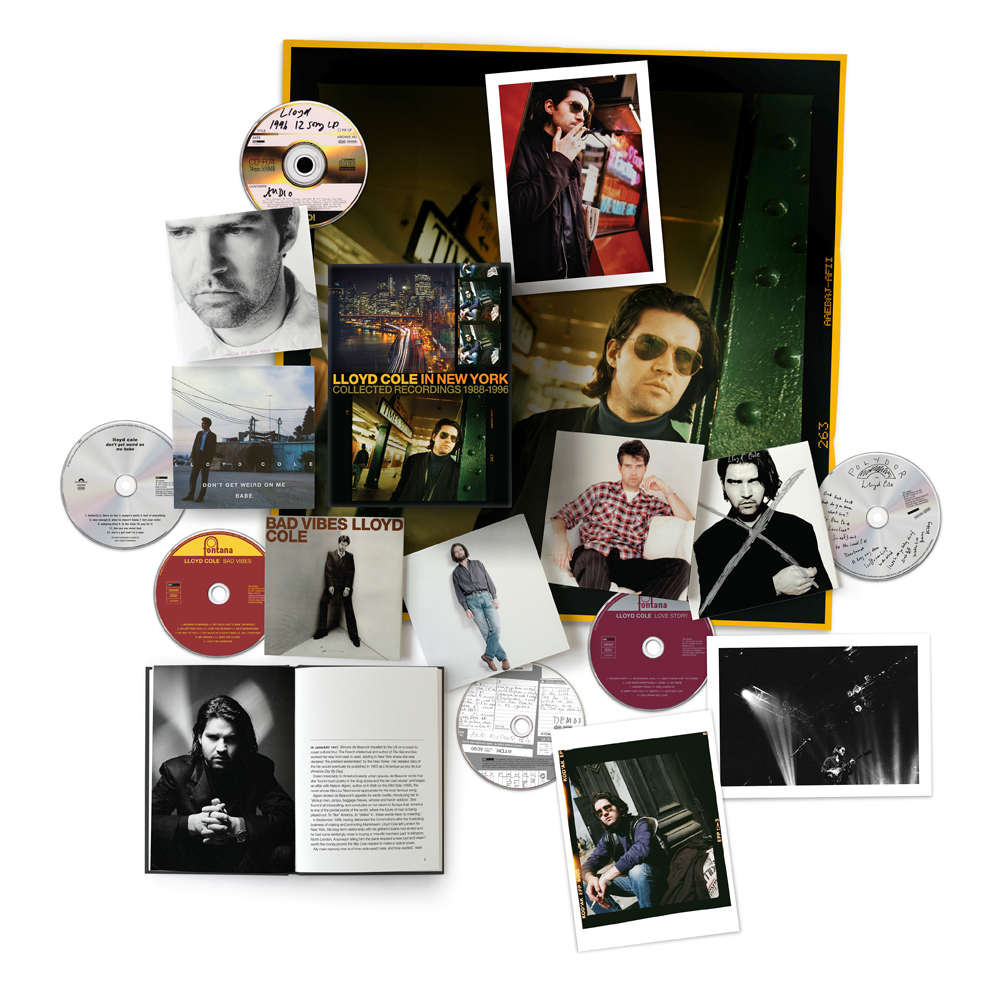
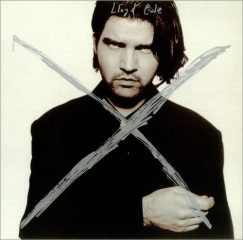
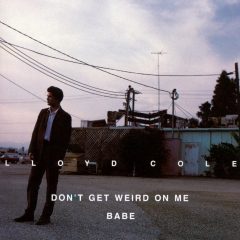
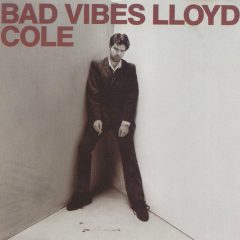
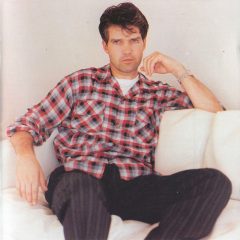
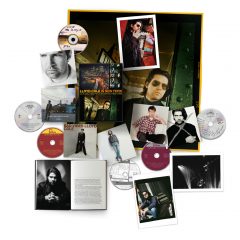
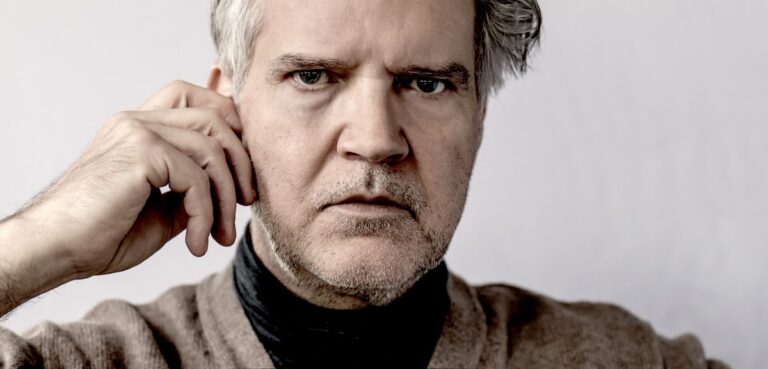
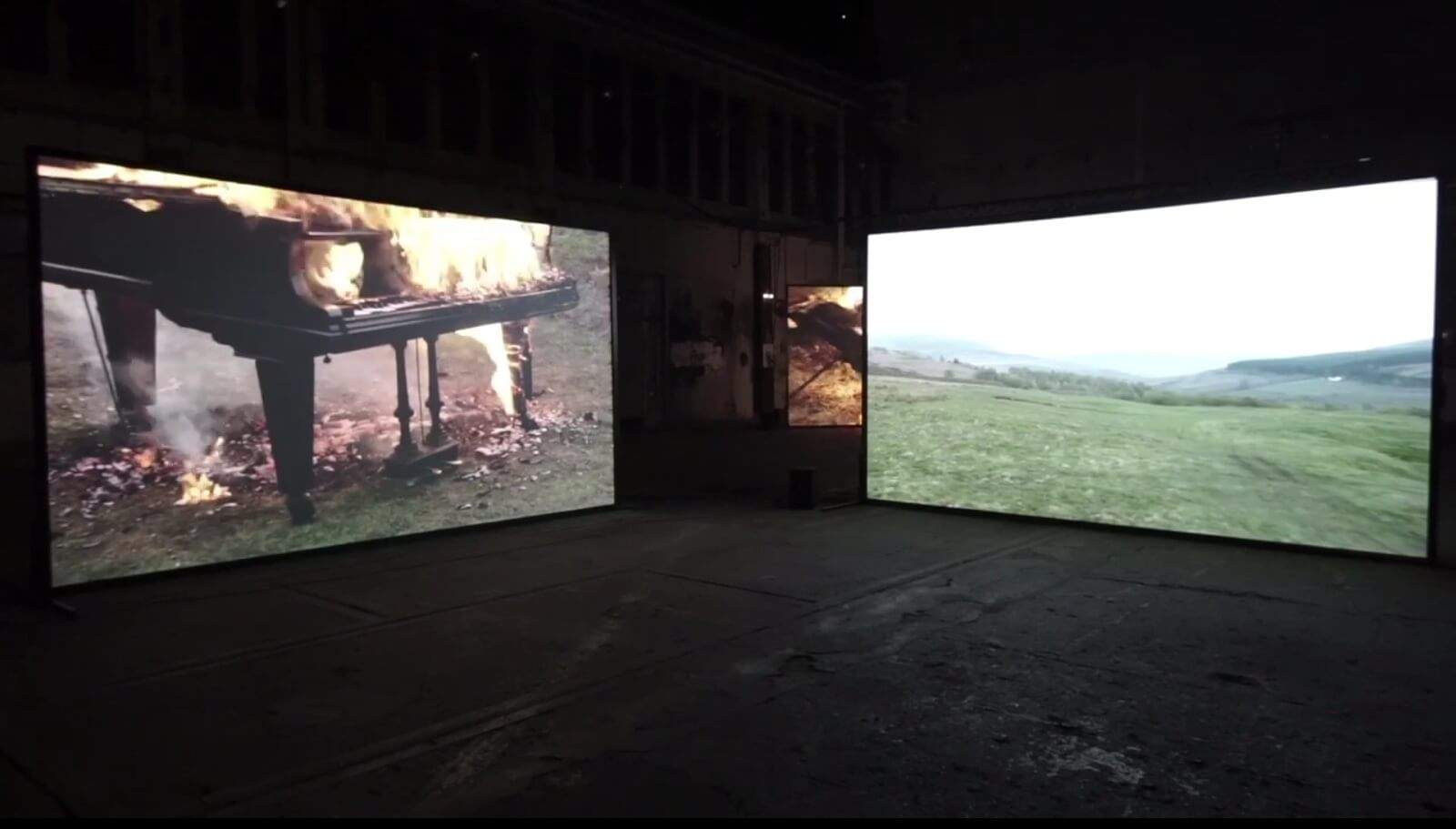
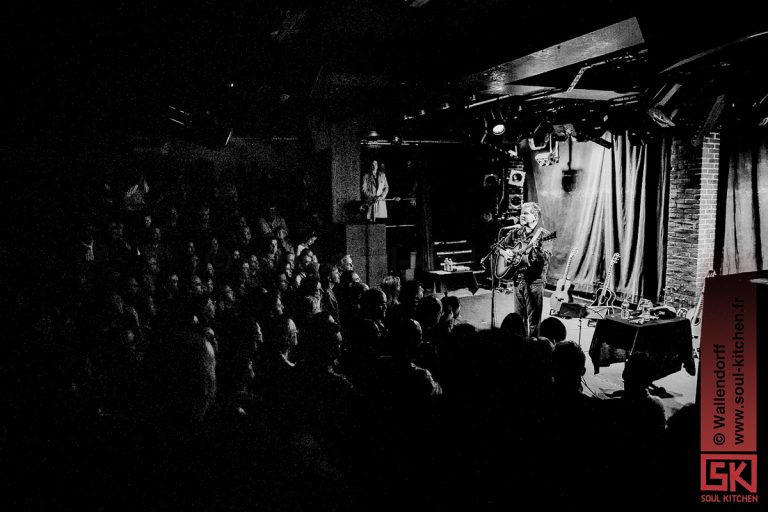
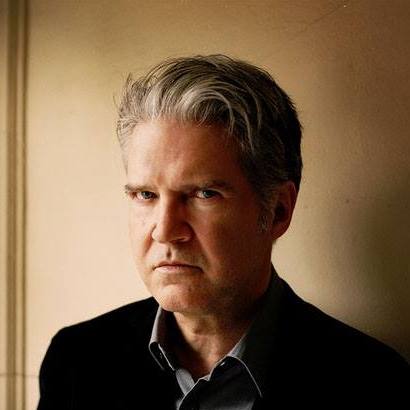

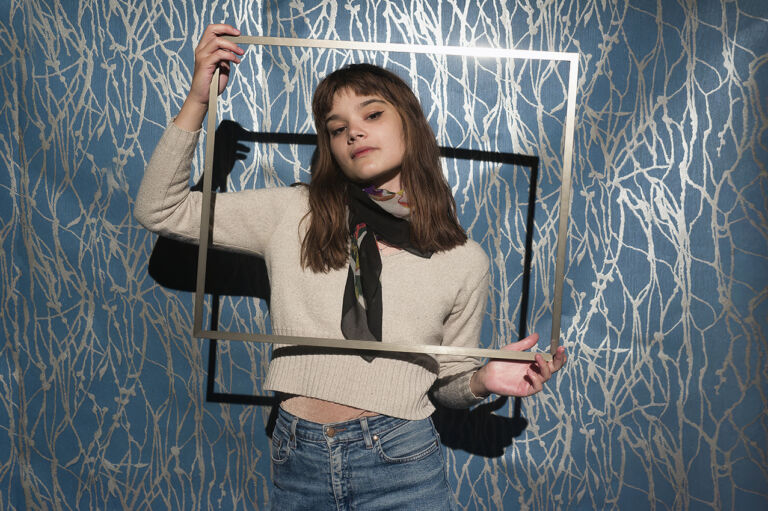
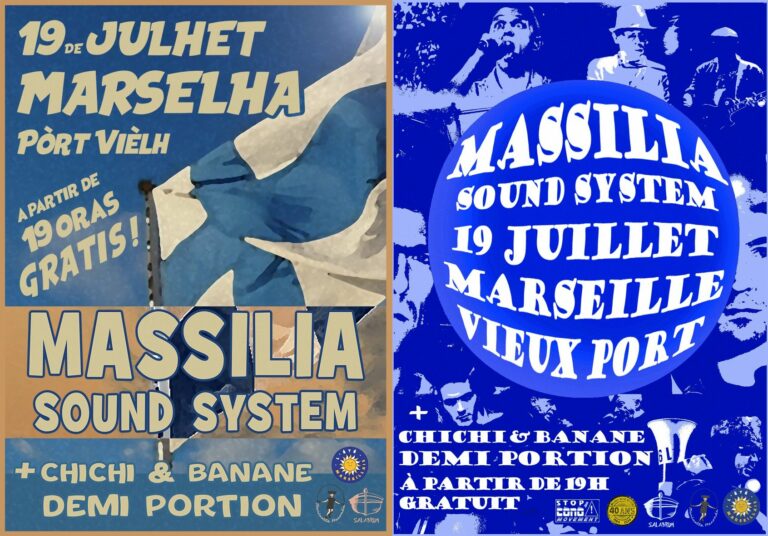
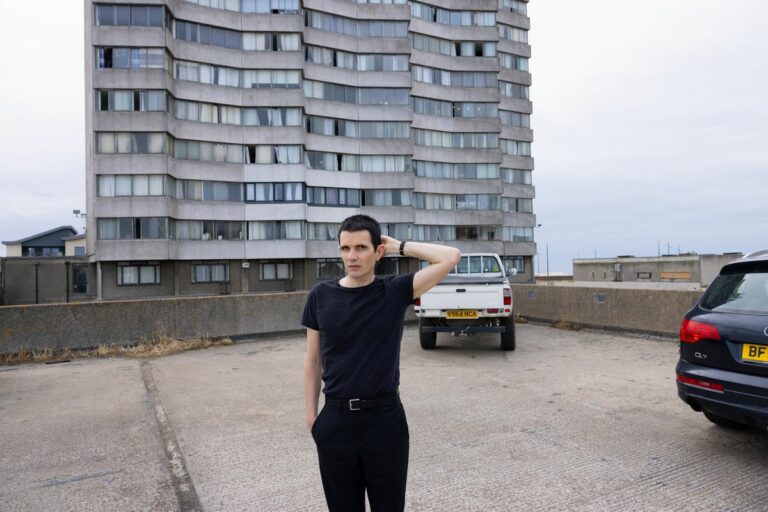
 Vision Taliscopique
Vision Taliscopique [1997 – 2017] Le voyage Immobile d’Autour de Lucie
[1997 – 2017] Le voyage Immobile d’Autour de Lucie